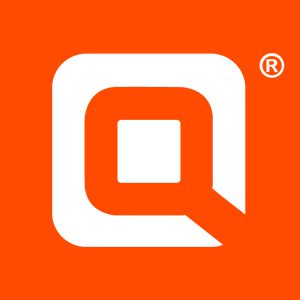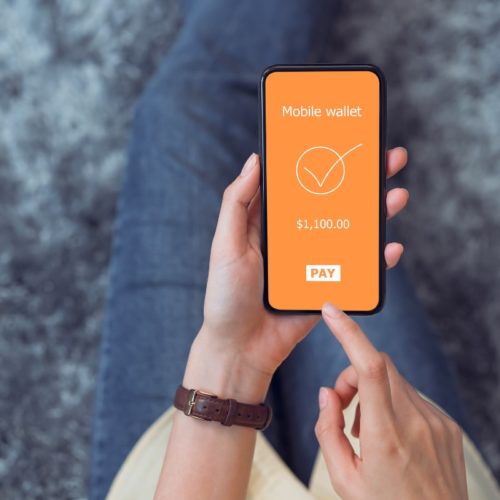Your checking account is where it all happens. It’s the center of your financial universe, some might say.
But after you’ve opened the account, things seem done and dusted. You use your account daily – yet you rarely question whether your account could do more for you.
There are some pretty awesome checking accounts on the market – and it would be a shame to miss out. I’m talking about accounts that are completely free (if you still pay for yours!) or accounts that even pay you just to use them.
Yes, that’s right – you could be making money just by keeping your account open (and keeping some money there).
11 Best Checking Accounts
Here are the best checking accounts you can open today:
- 🏆 Chase: Total Checking Account
- Discover: CashBack Debit Card
- Axos Bank: Rewards Checking Account
- PNC: Virtual Wallet
- Capital One: Capital One 360 Checking
- Ally Bank: Interest Checking Account
- Alliant Credit Union: High Rate Checking
- Connexus Credit Union: Xtraordinary Checking
- LendingClub Bank: Rewards Checking
- NBKC Bank: Everything Account
- Quontic: High-Interest Checking
1. Chase Total Checking
The Chase Total Checking account is an excellent option, especially if you want a physical branch you can pop into on every corner. Chase has one of the biggest branch and ATM networks in the U.S. (Yup, more than 4,700 branches!)
The account isn’t free — there’s a $12 maintenance fee – but you can avoid it by receiving at least $500 in direct deposits a month and keeping a daily balance of $1,500. As a plus, they often offer bonus offers if you meet the qualifying requirements.
Pros:
- $12 maintenance fee can be waived
- No minimum balance requirements
- Access to 15,000+ Chase ATMs
- Access to over 4,700 bank branches
- Highly-rated mobile app (4.8 on the App Store, 4.4 on Google Play)
Cons:
- $12 maintenance fee
- $34 overdraft fee
- Doesn’t earn interest
Continue Reading:
2. Discover Bank Cashback Debit Checking Account
With Discover Bank’s Cashback Debit Checking account, you can get 1 percent cash back on up to $3,000 in qualifying purchases each month.
Plus, forget having to pay for your checking account – there are no maintenance fees, no insufficient fund fees, or ATM fees (at over 60,000 ATMs in the U.S.)
Pros:
- No account fees.
- No minimum balance requirements.
- Earn 1 percent cash back on up to $3,000 in purchases each month.
- Access over 60,000 free ATMs nationwide.
- Highly-rated mobile app (4.8 on the App Store, 4.7 on Google Play).
Cons:
- Not accepting new applications at this time
- No physical branches
- Limited online tools
Continue Reading:
3. Axos Bank Rewards Checking Account
Axos Bank’s Rewards Checking account is an excellent choice for anyone looking to earn high interest on their checking account.
Your checking account balance could earn 3.30% APY if you combine the following criteria:
- Direct Deposits: Receive monthly direct deposits of $1,500 or more, not including transfers, to earn the first 0.40 percent APY.
- Debit Card Use or Personal Finance Manager: Use your debit card 10x per month ($3 minimum per transaction) or sign up for the Personal Finance Manager to earn another .30% APY.
- Managed Portfolios: Keep an average daily balance of at least $2,500 in one of Axos’ managed investment accounts for an additional 1.00% yield.
- Self-Directed Trading: You can earn an additional 1.00% APY if you maintain an average daily balance of $2,500 in a Self Directed Trading Account from Axos.
- Loan Payment: If you have an Axos Bank loan and use your checking account to make full monthly payments, you can earn another .60% in interest, getting you to the full 3.30% APY.
Axos Bank stops paying interest on checking balances of $50,000 or higher. Axos hits the spot in other areas too – like no maintenance fees, monthly minimums, or overdraft fees. There’s a $50 minimum opening balance, but that’s pretty easy to hit. Also, with Axos Bank, you get unlimited domestic ATM fee reimbursements, which is pretty awesome.
Pros:
- Earn up to 3.30 percent APY on any balance (if you meet the qualifying activities).
- Unlimited ATM fee reimbursements in the U.S.
- No overdraft fees
- No minimum account balance.
- Only $50 to open an account.
Cons:
- No interest on balances over $50,000
- Difficult requirements to earn the full 3.30% APY
- Has a minimum opening deposit requirement
Continue Reading:
4. PNC Virtual Wallet
PNC Virtual Wallet is an ideal choice if you’re looking for a hybrid account for your checking and savings.
Virtual Wallet features a Spend checking account, a Reserve interest-bearing checking account for short-term goals, and a Growth long-term savings account.
It also comes with convenient features like spending categories, a calendar for budgeting, and a customizable Low Cash Mode tool to help you avoid overdraft fees.
You can choose from three account tiers, with varying interest rates and waivable monthly fees ranging from $7-$25. Additionally, new accountholders can earn a bonus of up to $400 with qualifying direct deposits.
In terms of accessibility, PNC has more than 2,300 locations and around 60,000 ATMs in its network.
Pros:
- Highly rated mobile app
- Flexible overdraft protection
- Competitive bonus offers
Cons:
- Monthly service fees (waiveable)
- Mediocre interest rates for smaller accounts
5. CapitalOne 360 Checking Account
CapitalOne 360 Checking Account checks many of the most important boxes – and it has some pretty exciting perks. There are no fees, no minimum opening deposit, and you also earn interest on your balances.
On top of that, CapitalOne’s mobile app receives excellent ratings – and the company prides itself on user-friendly digital tools.
Pros:
- No monthly maintenance fees.
- No minimum balance requirements
- Earn interest (0.1 percent on all balances).
- Highly-rated mobile app for banking on-the-go (4.7 on the App Store, 4.6 on Google Play)
Cons:
- No ATM reimbursements
- Fewer branches than some national banks
- Fees for cashier’s checks and outgoing domestic wire transfers
Continue Reading:
6. Ally Bank Interest Checking
Ally Bank delivers what we all want from a checking account: no monthly maintenance fees, no minimum opening balance, and your money grow without you having to take any action.
You can beat Ally Bank’s interest rates with another online bank, but it’s hard to beat the bank’s convenience and simplicity.
Ally is also super diverse for an online bank. You could get a mortgage, an investment account, an auto loan, and, of course, high-yield savings accounts, certificates of deposit, and customer service around the clock.
Pros:
- It’s free ($0 monthly fee).
- Top-rated mobile app (4.8 on the App Store, 4.3 on Google Play).
- The account is interest-bearing (0.1 percent APY on balances of less than $15,000, and 0.25 percent on balances of $15,000 and more).
- There’s no minimum deposit.
- Access to over 43,000 free ATMs.
Cons:
- No physical branches
- No cash deposits
- Fees for outgoing domestic wires and returned deposit items
Continue Reading:
7. Alliant Credit Union High Rate Checking
Alliant Credit Union is a good option if you’re looking for a digital credit union that lets you keep all your accounts in one place, with CDs, saving, checking accounts, credit cards, loans, and investment accounts.
Alliant has two checking accounts—a High Rate Checking account and a joint Teen Checking Account.
Both accounts have a .25% APY, regardless of your account balance. They also have no monthly service fees or minimum balance requirements. You get a contactless Visa debit card and $20 per month in rebates for out-of-network ATMs.
Aliant’s mobile app is also highly rated, with a 4.7 in the app store and a streamlined user experience.
Pros:
- No monthly services fees
- No minimum balance requirements
- Specialized teen checking account
- Network of over 80,000 ATMs
Cons:
- Mixed customer reviews
- No physical branches
- Membership required
8. Connexus Credit Union Xtraordinary Checking
Connexus has three credit unions, but its Xtraordinary checking account takes the prize, scoring high for its account features, rates, and convenience.
It offers up to 1.75% APY, which is significantly higher than the national average. To get the full yield, you need to make 15 debit card purchases or spend $400 in a given month.
The account provides a contactless Visa card and free overdraft transfers from your connected accounts. You also get access to over 67,000 fee-free ATMs and $25 of monthly rebates for out-of-network ATMs.
To open an account, you’ll have to become a Connexus member and open a savings account. If you aren’t eligible to join based on your employer or location, you can still join by donating $5 to Connexus’s charitable association.
Pros:
- Competitive APY
- Highly rated mobile app and customer service
- No minimum opening deposit requirement
- Over 6,000 branches in WI, MN, OH, and NH
Cons:
- Requires a membership and saving account
- Doesn’t pay 1.75% APY on balances over $25,000
- No yield or ATM rebates if you don’t meet minimum requirements
9. LendingClub Bank Rewards Checking
LendingClub Bank’s reward checking account is a sound choice if you’re looking for competitive cashback rewards based on your account balance.
To take advantage of the 1% cash back rewards and .15% APY on your account, you need to maintain an account balance of $2,500. You’re also eligible for cashback rewards if you earn at least $2,500 of direct deposits in a given month.
The account has a $25 opening deposit requirement, but there are no monthly maintenance fees or balance requirements.
The mobile app has some handy features, including budgeting tools and insights into your spending habits. And the LendingClub debit card is compatible with Apple Pay, Samsung Pay, and Google Pay.
Pros:
- Competitive cashback rewards
- Unlimited ATM rebates
- 2-day paycheck advances
- No monthly or overdraft fees
Cons:
- $2,500 balance requirement to earn rewards and APY
- $25 minimum opening deposit
- Less competitive APY
10. NBKC Bank Everything Account
NBKC Bank’s Everything Account does what its name suggests, rolling savings and checking into one account.
It’s a great pick for fee-free banking—there are no minimum balance fees, overdraft fees, or monthly service fees.
You also get 24/7 mobile banking, access to 37,000 ATMs, and APY without any minimum requirements.
NBCK’s app also stands out, with a financial snapshot feature and tool for setting savings goals. If you have any issues, you can reach customer support by phone, email, or live chat on the bank’s website.
While you might be able to find more competitive interest with other individual checking and savings accounts, the simplicity of this all-in-one account and its convenient features make it well worth considering.
Pros:
- No monthly or overdraft fees
- $12 monthly rebates for out-of-network ATMs
- No balance requirements to earn APY
- Works as a checking and savings account
Cons:
- $45 international wire transfer fee
- Limited physical branches
- Not the most competitive APY
11. Quontic High-Interest Checking
Quontic’s high-interest checking account offers a really competitive return with easy requirements.
You can earn 1.10% APY by making 10 point-of-sale transactions of at least $10 with your Quontic debit card per month. If you don’t meet that threshold, you get a .10% APY.
The account does have a minimum opening deposit of $100. There are no monthly service fees or overdraft fees, but there is a $5 dormant account fee.
Quontic also has an impressive Bitcoin rewards checking account and cashback rewards checking if you’re looking to open more accounts.
Asa digital bank, Quontic has honed in on creating a solid mobile banking experience. You can use the app to easily transfer funds, send money with Zelle, and deposit checks.
Pros:
- Competitive APY
- Mobile and online banking
- No overdraft fees
- Network of over 90,000 ATMs
Cons:
- $100 minim deposit requirement
- Limited physical branches
- No weekend customer support
Continue Reading:
Can You Have Multiple Checking Accounts?
So, you’re seeing these fantastic free checking accounts and thinking… why can’t I just have multiple accounts – and reap ALL the benefits you’ve just mentioned?
While that’s a very valid question and has crossed the minds of many, dealing with multiple financial institutions can get too confusing. Having one or two accounts should be easy enough to manage. Especially if you own a small business or side hustle and want to keep your personal finances separate from work.
That’s the right thing to do – and if you’re looking for a bank for your business, check out this list of best business checking accounts for 2025.
But if you decide to open three or four accounts at different banks – that’s when it may no longer be worthwhile. Here’s why:
Managing Accounts Gets Tricky
If you have multiple accounts, keeping track of your accounts, their passwords, and other sensitive information can be difficult. You always have to keep an eye on your account to prevent identity fraud or be able to identify it as soon as possible.
If you have one or two accounts that’s an easy task — I recommend opening a high yield savings account online and connecting it to your primary checking account.
But having accounts with three or four different financial institutions, on the other hand, can mean things get a little overwhelming, and you aren’t able to protect your private information as well as you should. Each account you open should have a specific purpose, and the bank you choose should be uniquely qualified to take care of its purpose. If an existing bank can do what you need just as well, or almost as well, keep things simple by staying put.
Fees Add Up
If you have multiple accounts, you’ll also need to keep track of how much you’re being charged for each account. You may open an account that’s free – but fees can be introduced later, or you could incur fees for certain transactions that you may not have known before.
Having multiple accounts means staying on top of bank fees becomes a challenge. And I know what you’re thinking – it’s just a dollar or two, but if you have many accounts, those fees can quickly add up — and they can gnaw away at your cashback rewards or higher interest payouts.
TIP: Make sure to keep a checking account buffer in each account.
Meeting Requirements Becomes Difficult
The bank accounts that offer interest checking accounts and other promotions often come with caveats.
- Minimum Balance Requirements: You’ll have to keep a specific minimum balance or use your debit card a dozen times a month. When your funds are distributed across multiple accounts meeting those requirements gets harder.
- Direct Deposit Requirements: For example, some accounts require direct deposits of $1,000 a month to waive monthly service fees or qualify for the best annual percentage yield — an easy-enough hurdle, right? But could you meet that requirement at two or three different accounts?
- ATM Fees: You might also forget which accounts refund ATM fees or which ones allow your partner to call customer service as a joint account holder.
Now if you’re willing to invest some time and energy into this, you could open and manage at least a couple of checking accounts – and reap their unique benefits. I know a lot of people who do this – and use certain accounts for cash back, others for spending abroad, and others for earning interest. It will require some calculations and being wise with your money, but it can certainly be done.
Should I Open an Online or a Traditional Checking Account?
Seems like every year my list of best checking accounts has yet another online bank. This is partly because new online banks come on the scene and offer nice perks like interest checking accounts and high-yield money market or savings accounts.
Should you consider an online bank for your primary checking account? Online checking can usually pay higher interest and offer lower fees, as you can tell by my list above.
The answer depends on how you use your checking account:
- Do you depend on making cash deposits directly into your checking? Online banks rely on mobile check deposits or transfers between your different financial institutions. Depositing cash could be a hassle. You’d need to deposit the cash in a local account and transfer the deposit to your online bank. It can take a few business days to transfer money. Or you could write a check from another bank and deposit the money more quickly via mobile check deposit. Even then it may take a few days for the check to clear.
- Do you have access to a fee-free ATM? This used to be more of a problem for online banks. But now most of them reimburse you for other banks’ fees when you have to use one to make an ATM withdrawal or deposit. Check your online bank’s policy before opening an account. Some work only on some ATM networks such as Allpoint or STAR. Others limit your ATM fee rebates per month.
- Do you rely on walking into an office and asking the teller a question or two? You couldn’t do this with an online bank, but you could call, chat, email, or in some cases, text.
The best banks — both online and traditional — give you the most seamless access to your money when you need it. You shouldn’t have to think about surcharges or ATM reimbursements every time you want to pay for something.
The best banks also have the features you want like overdraft protection and online bill pay. More and more online banks now charge extra fees for old-fashioned paper checks and paper statements.
Frequently Asked Questions
Is it safe to open a checking account online?
All of the banks that we listed are safe to open an account with online. As long as the bank that you are working with encrypts your data, you should be good to go.
It’s also important to make sure your online bank is insured by the Federal Deposit Insurance Corp. FIDIC-insured banks offer $250,000 of protection for each customer.
Do I have to make a deposit to open a checking account online?
Some banks require you to make an opening deposit. For online banks, you’ll likely transfer funds from another account but may be able to use a check or money order. If you have a local bank, you can make a cash deposit to fund your new account. Read the fine print to understand opening deposit requirements.
Can I get a bonus for opening a new checking account?
There are several great bank promotions that will offer a bonus when you open an account. Each one will have different steps and requirements, so make sure to read the details carefully before opening your new checking account.
Does my credit score affect my checking account?
Your credit history doesn’t directly affect your eligibility for a checking account, but banks can check your banking history through a special industry-specific database they call ChexSystems.
If you have other checking accounts that stayed in the red for weeks, or if you never cleared up overdraft charges on your last bank account, your new bank will probably know about it and may deny your application or charge higher fees.
Signing up for a joint account with someone who has a more placid banking history could help you access better terms. Now, your credit score will matter if you try to start an overdraft protection line of credit, which is a form of borrowing.
Are checking accounts free?
Some checking accounts don’t require a minimum balance or charge monthly maintenance fees, making them virtually free. But even those accounts may charge fees for some actions.
Regardless of whether you choose an online or local bank, look out for some of these common fees:
- ATM surcharges
- Overdraft fees
- Wire transfers
- Minimum balance
What are the benefits of opening a checking account online?
Online checking accounts have several benefits. Because they don’t have brick-and-mortar banks to operate, they’re able to offer higher interest rates and require fewer fees.
They also tend to offer exceptional digital tools to help you manage your finances on the go from your phone or computer.
What is overdraft protection?
Overdraft protection is an optional checking account feature that covers you if you exceed your checking account balance.
It’s a cushion that prevents charges from being rejected due to insufficient funds, ensuring the transaction goes through even if you’re short.
Which is the Best Checking Account for Me?
Ultimately, most of us want the same things from our checking account: low fees (or no fees at all), free ATMs (or multiple ATM fee rebates), and good customer support.
These are the very basic elements you should look for – but you could demand even more from your checking account!
Many banks allow you to earn interest on your cash, which is awesome. Make sure you know how much you need to deposit and keep in your checking account to earn interest – sometimes that can be a pretty hefty sum!
Note: You will owe taxes on interest from a checking account.







No comments yet. Add your own